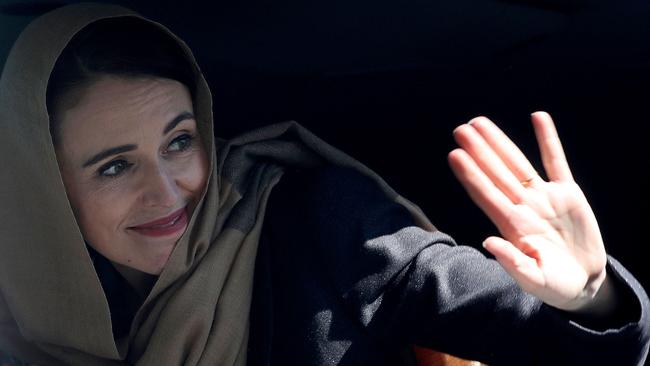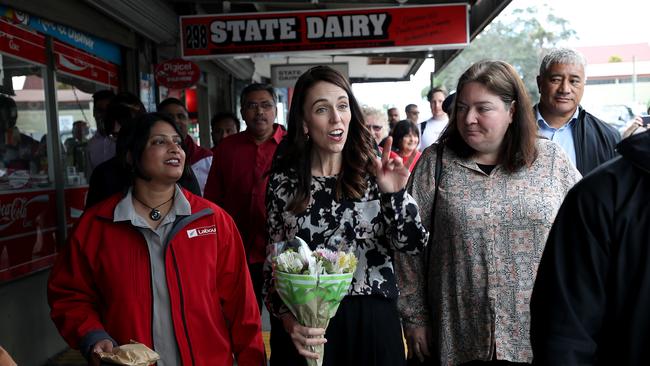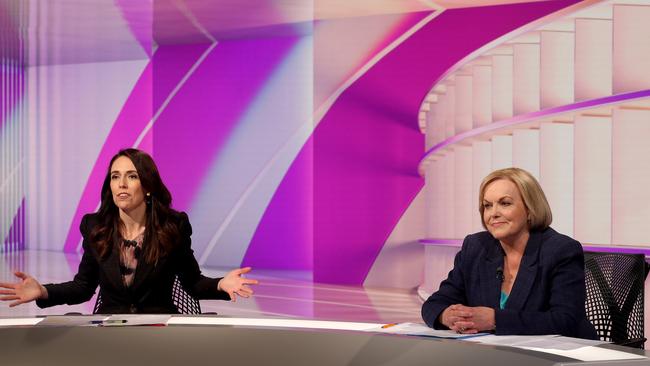NZ election: From go-it-alone strategy to a more pragmatic approach

Old friends can be hard-pressed to find new milestones, but New Zealand Prime Minister Jacinda Ardern claimed one with Australia when she joined Scott Morrison for a national cabinet meeting via video link back in May.
Not since the depths of World War II had a New Zealand prime minister attended such a gathering of Australian leaders involving the commonwealth, states and territories. But her message was that the extraordinary demands of the coronavirus pandemic made it crucial for both countries to prepare to connect, first with each other in a “bubble”, and then with the world again.
Morrison was clearly chuffed, happy to share the benefit of his discussions with “other leaders around the world”, as he put it, to “swap notes on a whole range of different restrictions and the economic impacts” of the pandemic.
Of course, in an alternate universe, this friendly moment in the midst of a crisis could have been far less pleasant and agreeable. Had New Zealand chosen differently all those years ago and instead decided to join in a federation with Australia rather than becoming a sovereign nation alone, a “Premier” Ardern would have been a regular face around the national cabinet table — and doubtless a focus of Morrison’s frustration.
Ardern has famously adopted a hard-line approach to COVID-19, putting health concerns before any thought of the economy. She took an early decision in March to impose a four-week lockdown, then to hunker behind closed borders in pursuit of an elimination strategy — exactly the tactic that has so annoyed Morrison in Queensland and Western Australia.
But New Zealand has long gone its own way, be it in relations with the US or attitudes towards China. And Ardern, facing an election on Saturday, is banking on these tough love COVID-19 policies to deliver her a second term.
New Zealand has suffered only 25 deaths and just over 1500 confirmed cases of the virus since the pandemic began. In the great global political wars about striking the right balance in dealing with the virus, New Zealand is held up as a paragon of virtue for putting health concerns first.
An economic contraction of 12 per cent doesn’t seem to have dented people’s faith. Opinion polls suggest Ardern is on track for a comfortable victory, with her Labour Party mostly likely to form government in a coalition with the Green Party. Disarray in the opposition National Party after three changes of leader this year alone has done Ardern’s prospects no harm either.
An outside chance of Labour winning 61 seats to form government in its own right seems to have slipped, with New Zealand’s peculiar proportional voting system, introduced in the 1990s, giving the minor parties considerable sway. But even should she win outright, Ardern’s consensus brand of politics may lead her to seek a coalition anyway.

Early voting began on October 3. With plenty of ballots already cast and little deviation in the poll results since, many voters appear to have made up their minds weeks ago.
Opposition Leader Judith Collins might stave off an electoral disaster for the National Party, having taken over only a few weeks before the campaign began. But her pitch to the electorate has mostly focused on recovery from recession, rather than debating the lockdown measures that, once lifted, gave the country a sense of normalcy.
Of more fascination is what fate may befall the minor parties. The predicted demise of New Zealand First under stalwart and Deputy Prime Minister Winston Peters will mark the end of an era. Peters had struck what appeared to be an unlikely partnership with Ardern to deliver her government in 2017, despite Labour not winning the most seats. But Peters’s sceptical message about immigration has failed to cut through at a time of closed borders.
The sting has also gone out of New Zealand’s complaints to Australia about the deportation of its citizens after criminal charges — one of the most prominent being the father of AFL Richmond Tigers superstar Dustin Martin. Instead, it appears the libertarian party ACT New Zealand will benefit from a surge in support and potentially form a bloc alongside the National Party.
But as much as Ardern has won praise both at home and abroad for her go-it-alone strategy in response to the virus, she will have more hard choices to make.
A re-elected Labour-led government will quickly find that the momentous global change building around rivalry between China and the US will catch up with New Zealand more than it has so far.
Indeed, Ardern is regularly branded “anti-Trump”, and was once described in a Vogue magazine profile as “young, forward-looking, and unabashedly liberal”. She has also won huge international acclaim and is widely regarded as a role model for being one of the very few female leaders to give birth in office.
But it was Ardern’s calm response after a deranged gunman killed 51 worshippers at mosques in Christchurch that truly propelled her international reputation. Ardern has a populist touch, but none of Trump’s overbearing demeanour and nasty edges. Instead of angry tweets stirring up division during the pandemic, she took to social media in a video for a gentle chat from her couch, “to check in” as she put it, and to explain to New Zealanders the rules under the lockdown and answer their questions.
Detractors proved premature with warnings Ardern could suffer the same burnout as another progressive hero, Canada’s Justin Trudeau. If Australians could vote, she’d have plenty more support. A Lowy Institute poll this year found 87 per cent of people had confidence in Ardern to “do the right thing regarding world affairs” — whereas barely 30 per cent had the same faith in Trump. (Morrison won 60 per cent backing.)
But for all the obvious contrast in styles, Ardern hasn’t gone out of her way to set herself against Trump or antagonise his administration. Despite the progressive values people project onto her — whether by her supporters or her critics — Ardern is often more centrist and pragmatic.

A somewhat awkward meeting with the US President on the sidelines of the UN last year she described as a “perfectly productive, warm, solid bilateral” talk, even if it lacked the same effusive pronouncements of enduring mutual support that regularly pepper summits between US and Australian leaders. (Morrison was treated to a state dinner at the White House around the same time.)
In part, this is as much a product of New Zealand’s history and geography as Ardern’s attitudes. A small nation with a population just shy of five million, far from the congested and strategic flashpoints in the globe, New Zealand will never see the world from the exact same vantage point as Australia — but that doesn’t make it a poor ally. Just a frustrating one for Canberra.
New Zealand remains in the exclusive “Five Eyes” club for sharing top secret intelligence, a grouping that is increasingly emphasised as these Western democracies push back against China. Unlike Australia, New Zealand has not become a regular target of shrill complaints by China’s “wolf warrior” diplomats. But over her first term, Ardern has subtly moved New Zealand closer to the orbit of Australia and the US in relation to China.
Her government has effectively blocked Huawei from investing in New Zealand’s 5G network and passed legislation to ban foreign donations in politics — without nearly as much fanfare or rancour, given that it followed Australia’s decision. Ardern has also gradually spoken out against China’s crackdown in Hong Kong and Xinjiang. In the South Pacific, she has backed efforts to invest in local infrastructure, joining Australia, the US and Japan in a bid to extend Papua New Guinea’s meagre electricity network. Intended or not, these efforts are seen as a counterweight to China’s growing regional influence.
China is crucial to New Zealand’s economy. Official data showed more than 28 per cent of New Zealand’s goods exports last year went to China. This was slightly lower than Australia, which had sent almost 33 per cent of its exports to China in the year before the pandemic.
But aside from forestry products, New Zealand’s shipments to China have continued to grow, mostly dairy and meat, while Australia fears for the future of barley, wine, beef and now coal exports.
“New Zealand-China relations are in good shape,” Ardern said in a major speech in July, something Morrison could hardly say about Australia’s ties with Beijing.
Ardern can sustain that line, for now. But this week she acknowledged New Zealand needed to diversify its economy beyond its reliance on China. So, even if the election doesn’t deliver it, New Zealand appears set for a change.
Daniel Flitton is editor of the Lowy Institute digital magazine, The Interpreter, and a former intelligence analyst.





